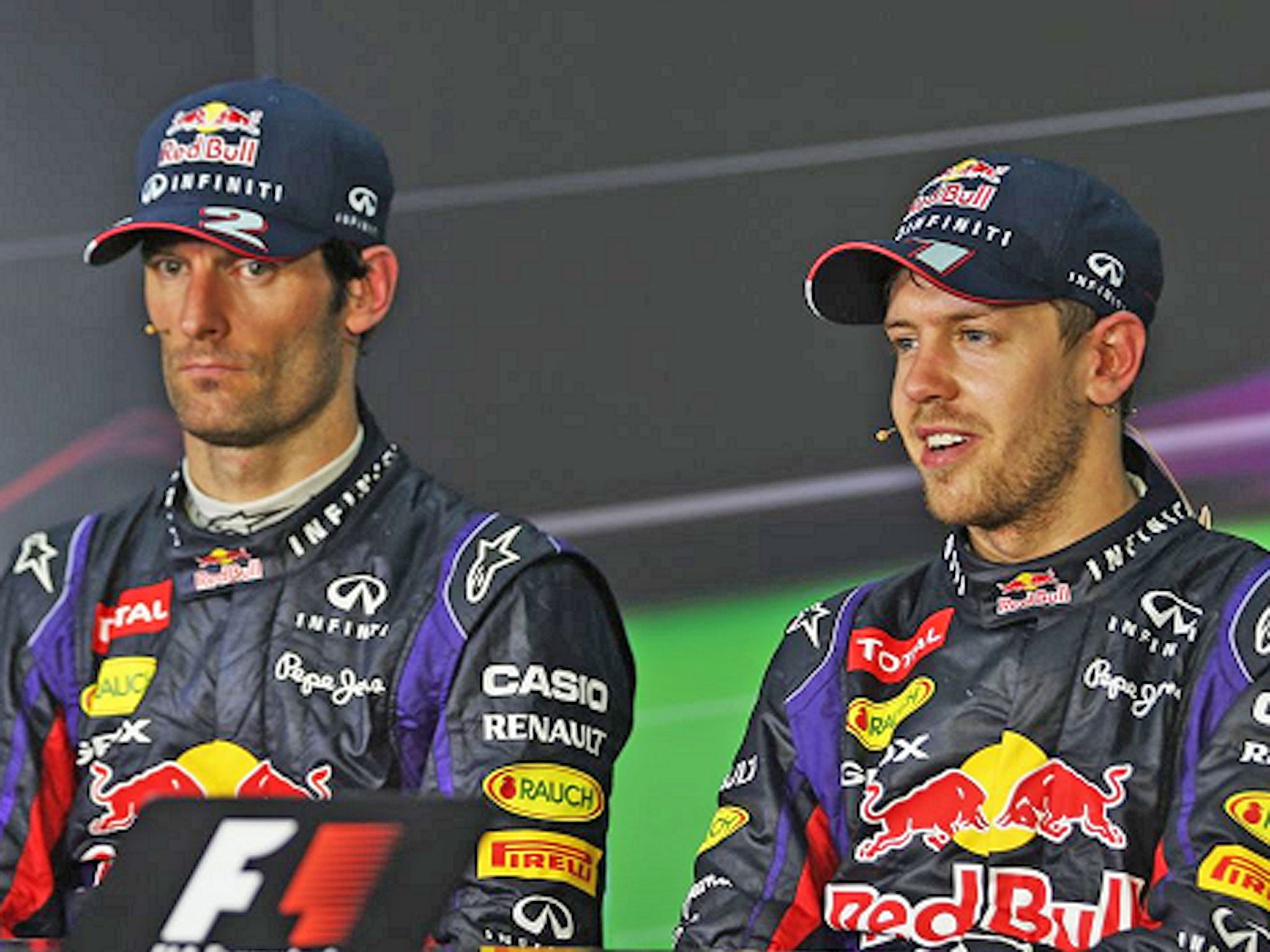Mark Webber, Sebastian Vettel and how we learnt that only the flag is black and white in Formula One
We have the spectacle of a man lambasted by his team for winning a race

What’s the difference between a Formula One Grand Prix and a nursery school egg-and-spoon race?
I’d suggest that one has a tendency to provoke terrible temper tantrums, possibly involving kicking, screaming and hair-pulling; the other is for toddlers. Another difference is that participants in the egg-and-spoon race are expected to do their best to win it. Not so a Grand Prix, judging by the toxic fallout following Sunday’s race in Malaysia.
The chequered flag was taken – Formula One’s euphemism for winning – by the reigning world champion, Sebastian Vettel. Those unfamiliar with the bizarre intricacies of motorsport might have expected the 25-year-old German’s team, Red Bull, to rejoice in his victory. But no.
In winning the race, Vettel had ignored orders. With 13 laps remaining, contrary to the instruction to hold second place until the end of the race, he overtook his team-mate, the seasoned Australian driver Mark Webber. Vettel’s boss, a normally mild-mannered Englishman called Christian Horner, called him stupid. And that was as nothing compared with what Webber called him.
There was even talk yesterday of the Australian retiring in disgust, all of which has caused no end of excitement among the kind of people whose veins run with Castrol GTX, while again befuddling those of us who find the appeal of motor sport roughly on a par with that of competitive hedge-trimming.
Indeed, the episode rather validates the old sneer that motorsport is sport for people who don’t like sport. Which is not to question the skills and bravery of the drivers, and yet they can only ever be as good as the cars they pilot. Races are won, championships decided, by nuts and bolts, not blood and sinew.
And now this, the preposterous spectacle of a man winning a race and being lambasted for it by his own camp. Lambasted, indeed, into an exhibition of hand-wringing contrition. Of course, Formula One enthusiasts will tell me that I don’t grasp its many nuances. Understanding just why an X-Y finish might be better for a team than a Y-X finish, they savour the compelling political intrigue of the sport that put the chicane into chicanery. Yet I make no apology for favouring that well-worn sporting ethos that every competitor should strive to win every contest, within the rules.
The inherent problem with Formula One is that drivers, by definition, are not team players. They are singular and single-minded men, many of whom embrace the collective ethic with all the warmth of a hypochondriac embracing a flu sufferer. For all the undoubted teamwork required by hundreds of clever and industrious people to put a car on a track, the very term Formula One team remains, in essence, oxymoronic. And on Sunday in Malaysia, the oxymoron was exposed.

Join our commenting forum
Join thought-provoking conversations, follow other Independent readers and see their replies